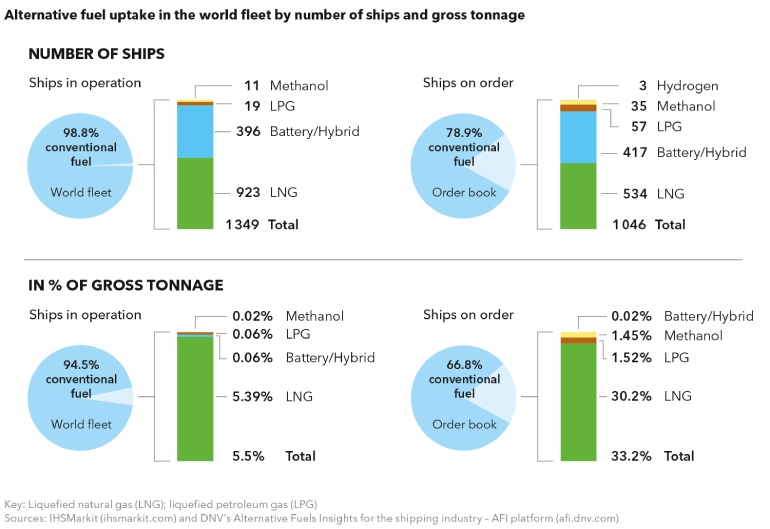BRIDGING FUELS
As the industry moves away from carbon-intensive heating oil (FO) to reduce greenhouse gas emissions, there are several alternative fuel options to choose from.
Not all alternatives are optimised for all owners or trades but represent promising short and medium-term “bridge fuels” to comply with tightening IMO mandates on GHG emissions until zero-emissions solutions can be developed.
Figure: Uptake of alternative fuels for the world fleet as of June 2021 including ships in operation and on order




